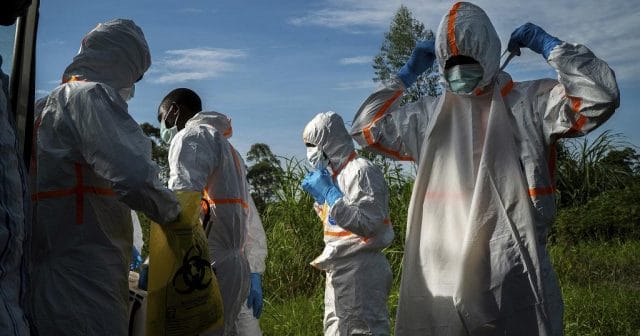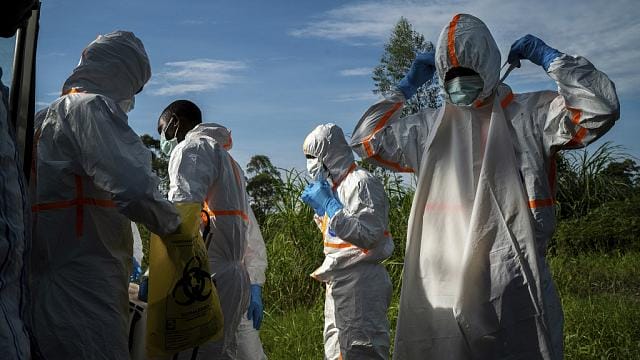Ivory Coast Ebola case was ‘false positive’, WHO backtracks

There is “no evidence” of the presence of the Ebola virus in Côte d’Ivoire, after new analyses by the Pasteur Institute in Lyon (France) on samples taken from a young Guinean woman presented by the Ivorian authorities as infected in mid-August, the World Health Organization (WHO) announced Tuesday.
“With the new results obtained by the laboratory in Lyon, WHO believes that the patient did not have Ebola virus disease and further analysis on the cause of her illness is underway,” said a WHO statement.
“Since Côte d’Ivoire announced the detection of the case” on Aug. 14 of an 18-year-old Guinean woman who arrived in Abidjan by road from her country after a 1,500-kilometer journey, “more than 140 contacts have been listed in both countries. No other people have shown symptoms of the disease, nor have they tested positive for Ebola,” the WHO added.
As a result, the organization “is now downgrading its interventions in Côte d’Ivoire from response to alert status.
The Ivorian Minister of Health, Pierre Dimba, said Tuesday evening in a statement that the tests were conducted by “the Bio-Mérieux laboratory in Lyon” (allied to the Pasteur Institute since 2010 for research, editor’s note).
“The results came back negative, the government decided to classify the Guinean patient as a non case of Ebola virus disease, thus removing Côte d’Ivoire from the list of Ebola virus countries.
“This situation has allowed our country to test its national system of preparation and response to an epidemic,” he added.
Ten days after the announcement of the case presented as the Ebola virus, following analysis by the Pasteur Institute in Abidjan, the Ivorian Ministry of Health had announced that the young woman was “cured”.
This discovery had been presented as the first confirmed case of Ebola in Côte d’Ivoire since 1994, in this neighboring country of Guinea which was severely affected from 2013 to 2016 and where the virus reappeared in 2021.
The Ivorian health authorities had received 5,000 doses of Ebola vaccine and started on August 17 a vaccination campaign of target groups, health care workers who were in immediate contact with the patient and security forces deployed at the border with Guinea.
The young woman’s relatives and neighbors in the Abidjan neighborhood where she briefly resided after her arrival were also vaccinated, as well as those who had been in contact with her during her trip.
Guinea quickly questioned the diagnosis made by Côte d’Ivoire and demanded further testing.
In response, the Ivorian Ministry of Health said it had no “doubt” about the diagnosis.
“The Guinean authorities doubt the clinical diagnosis, I do not doubt my analysis, I am an infectious diseases specialist and clinician, we can not be mistaken in the clinical presentation,” said AFP Serge Eholié, spokesman for the Ministry of Health and head of the department of infectious diseases and tropical CHU Treichville in Abidjan, which hosted the patient.





